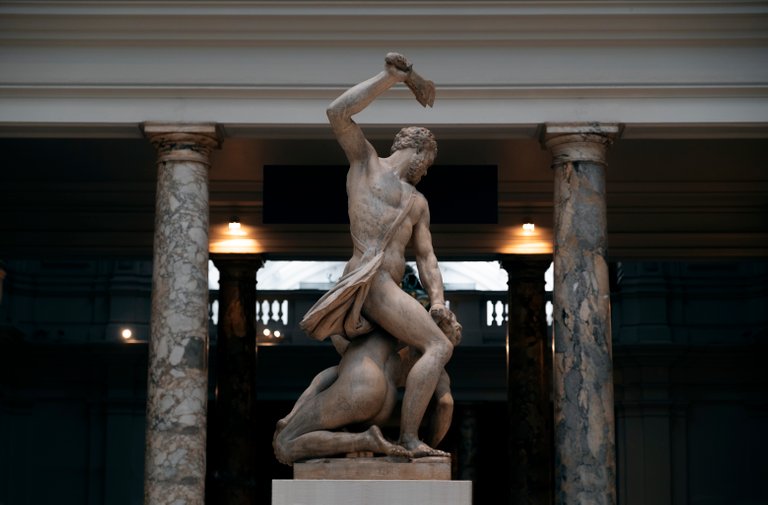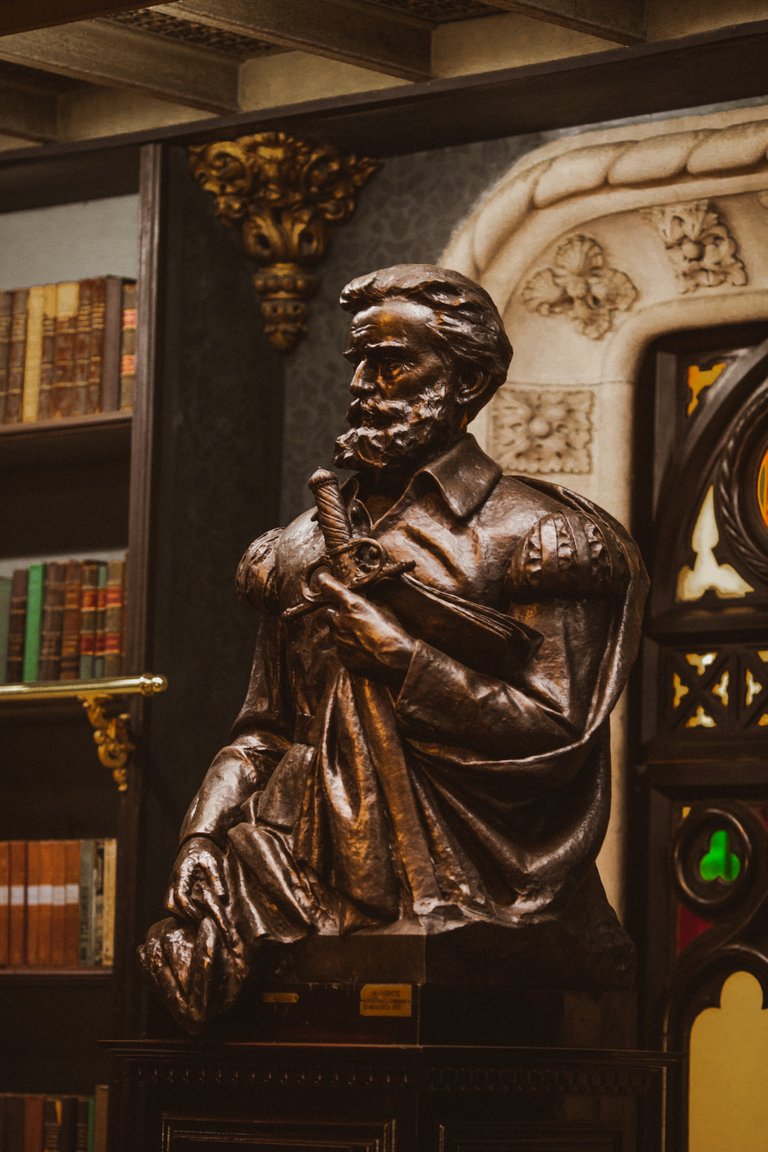Greek Technology in Pre-Socratic Philosophy
Pre-socratic philosophy is the earliest form of philosophy in ancient Greece before Socrates entered the picture.
During that time, philosophers were gradually moving away from relying on myths and gods. But more into using their senses and their minds to form arguments and find rational explanations for the universe and its phenomena.
I'll say it was a turning point in human history as we were putting our foot on the ground, start walking on our own and discovering our environment and trying to make sense of it from a first person viewpoint.
This created a new form of knowledge and by extension a form of technology. This is because these philosophers used rational methods and principles to understand and sometimes influence the natural world.
For example, they used observation to create experimentations that will help them test out their theories. Some of these ended up becoming inventions.
Cosmology, Metaphysics and Ethics
I think these three topics where the foundation of most of the inventions the early philosophers of Ancient Greece made. Cosmology gives us an understanding of the world we live in, metaphysics gives us a scope to view the world and ethics gives us codes or rules to use in regards to application on the things of the world.
Some examples of Pre-Socratic philosophers who proposed different theories related to these three topics are:
Anaximander: From his observations and experiments, he proposed that the boundless (apeiron) was the source of all things, as it was infinite, eternal, and indeterminate.
He developed a model of the universe which consisted of a cylindrical earth surrounded by concentric rings of fire. He's attributed to also have made the first map of the world and invented the sundial.
Anaximenes: He was a student of the philosopher Anaximander. For him, he made the argument that air was the primary substance of all things, as it could change its density and quality (hot, cold, moist, dry) to produce different phenomena.
The cosmos, according to Anaximenes, consisted of a flat disk of Earth floating on air, and fiery circles of sun, moon, and stars revolving around it.
Pythagoras: He was a student of Anaximenes. Pythagoras believed that numbers were the essence of reality, as they could explain the order and harmony of the cosmos.
Through his experiments with numbers the discovery of the Pythagorean theorem was made.
The theorem tells us that a right triangle has a unique characteristic. The sum of the squares of the two shorter sides is equal to the square of the longest side.
Heraclitus: He was a witty philosopher who wrote in obscure and paradoxical aphorisms.
One of the claims he made was that change and fire were the fundamental elements of all things, as they represented the dynamic and eternal process of becoming.
He also introduced the concept of logos, which depending on context can mean reason, word, or principle. According Heraclitus, this logos is the governing force of the universe. Two of his many aphorisms are: “the way up and down is one and the same” and that “you cannot step into the same river twice”.
Empedocles: He was a philosopher and a wordsmiths who wrote in hexameter verses. A hexameter is a line in a poem having six metrical feet(feats, facts).
He proposed that there were four elements (fire, air, water, earth) and two forces (love and hate) that composed and decomposed all things.
A theory of perception based on effluences or emanations from objects was also developed by him. One of his main aphorisms is; “all things are composed of four elements, and two forces make them friendly or hostile to each other”.
Democritus: He developed the theory of atomism with his teacher Leucippus. He claimed that pleasure and pain were the good or the end of human life, as they reflected the harmony or disharmony of atoms in the soul.
He also applied this theory to explain the nature and origin of the soul, the senses, the mind, and ethics.
For him, humans should adopt a way of life based on cheerfulness, contentment, moderation, and justice.
Protagoras: He was one of the first sophists or professional teachers in ancient Greece.
He claimed that man was the measure of all things, which meant that truth and morality were relative to each individual or society.
The concept of humanism was introduced by him. The meaning of this concept is placing human interests and values above divine or natural ones.
As a professional teacher, he taught various subjects such as rhetoric, grammar and logic. One of his well spoken aphorisms is that “there are two sides to every question”.
Diverse And Incoherent
While the cosmological theories aimed to explain the origin and nature of the physical world by identifying principles that underlie all phenomena. The metaphysical theories explored the nature of being, reality, and knowledge. Philosophers like Heraclitus challenged the traditional views of myth and religion and proposed seemingly rational arguments for their claims.
But what I find most fascinating is the ethical theories that examined the nature of human life, society, and morality. Not only did they questioned the conventional values and norms, but they also proposed alternative ways of living and thinking. Take the concept of humanism from Protagoras. Doesn't that sound a bit selfish(or even arrogant) to put our interests and values above divine and natural ones when we are clearly beneficiaries from these two generous givers?
Despite it sounding selfish, I believe there's some wisdom to it. Humanism helps us become more 'human' in a sense that we develop our individuality and become separate from the divine or nature. Many people before that era had a little sense of individuality or what it means to be separate from one's environment or the divine.
But it comes with a cost which is becoming too separate from those two that we almost lost the connection that we had with them(nature and the divine). This pretty much is a core part of what materialism is about.
Where's The Technology?
Technology is often defined as the application of scientific knowledge for practical purposes. However, I believe this definition is not exclusive or exhaustive.
Technology can also be understood as a creative and transformative process that involves human agency, values, and goals. And in this sense, philosophy can be seen as a form of technology, as it applies rational knowledge to address fundamental questions and problems about reality, morality, and society.
Conversely, technology can also be seen as a form of philosophy. This is because it is a mirror that reflects and shapes human understanding and values.
Knowingly or unknowingly, the Pre-Socratic philosophers were among the first to practice philosophy as a form of technology. They used observation, reasoning, and logic to develop their theories and arguments.
But they didn't stop at theories and arguments, they also applied their philosophical knowledge to practical purposes in various industries and crafts in their time.
For example, it is said that Pythagoras founded a community that followed a way of life based on numbers and harmony. And Democritus practiced a rational and moderate way of life, based on his philosophy of atomism and eudaimonia.
These examples show that the Pre-Socratic philosophers were not only interested in abstract speculation, but also in applying their knowledge to solve practical problems and improve human life. Which is basically what technology is about in a nutshell.
Thanks for reading!! Share your thoughts below on the comments.
Posted Using LeoFinance Alpha




Technology is very practical and I bet if these great philosophers were alive during this era of innovations they would invent extraordinary technology that has never been seen before.
Absolutely, I'll be betting on Democritus first and foremost, then Pythagoras and perhaps Heraclitus. I think they were non-conformist that chose to defy tradition and establish their own way of thinking and viewing the world. Through that a technology emerged which has carried on till the present times.
Thanks for stopping by :)
Congratulations @takhar! You have completed the following achievement on the Hive blockchain And have been rewarded with New badge(s)
You can view your badges on your board and compare yourself to others in the Ranking
If you no longer want to receive notifications, reply to this comment with the word
STOPCheck out our last posts: